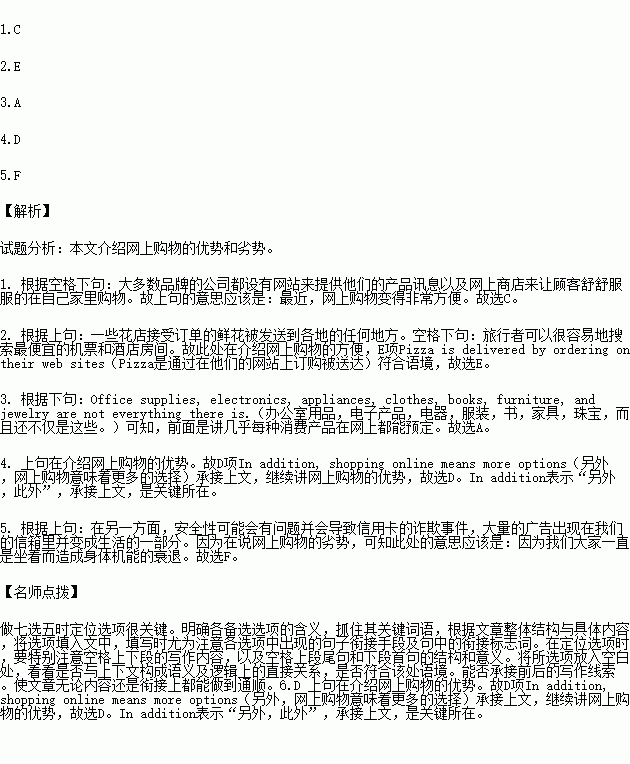题目内容
根据对话内容,从对话后的选项中选出最佳选项,并将其答案标号填入题后的空白处。选项有两项为多余选项。
___1.____ Most big name companies have websites offering information on their products and online stores allowing shoppers to purchase them in the comfort of their homes.
The first things that became wide spread online were computer equipment and accessories(附件). It is still seen everywhere in our life today, but we can find much more on the internet. Some flower shops accept orders for flowers to be sent to anywhere around the globe. ___2.____ Travelers can easily search for the cheapest airplane tickets and hotel rooms.
___3.___ Office supplies, electronics, appliances, clothes, books, furniture, and jewelry are not everything there is. Factor in the auction sites like eBay, every average computer user can buy and sell virtually anything; even automotive parts from junkyards.
The advantages of shopping online include cheaper prices, fast searching and no time constraints(限制). 4. Because of the informational globalization, consumers are provided with the opportunities of getting everything they want. On the other hand, security might fail and lead to credit card frauds(诈骗). A variety of ads in our email accounts become a part of life. 5.
A. Almost every type of consumer products can be ordered online.
B. Today a large number of people like surfing the web at home.
C. Online shopping has become very convenient in recent years.
D. In addition, shopping online means more options.
E. Pizza is delivered by ordering on their web sites.
F. And atrophy(肌能萎缩) takes over because we are all sitting down.
G. And we are living a wonderful life.
 名校课堂系列答案
名校课堂系列答案
